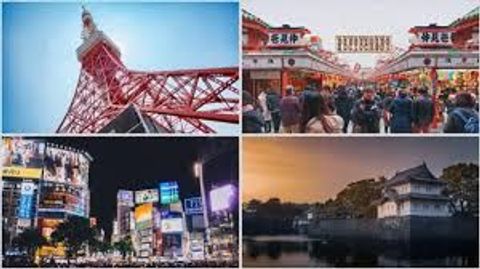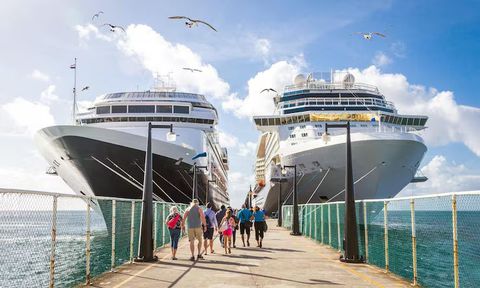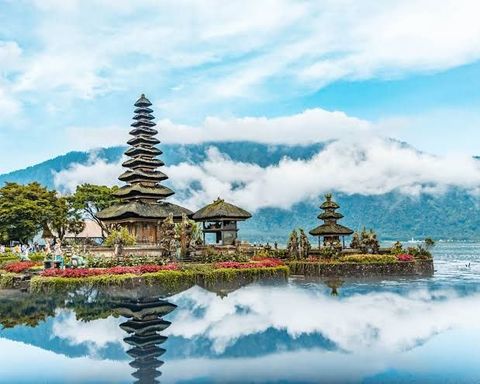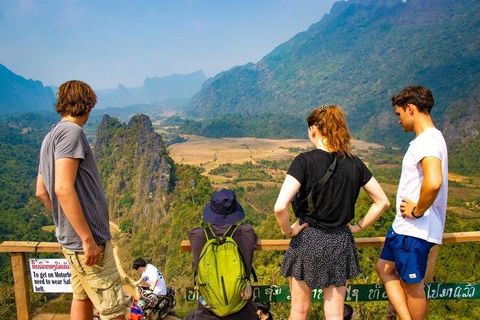Tourist visas play a vital role in regulating international travel. While they enable cultural exchange and economic activity through tourism, they also help countries manage border control, national security, and immigration flow.

Tourist visas are typically short-term (ranging from 15 to 180 days), and most do not allow employment or long-term residency. They may be granted as single-entry or multiple-entry, depending on the issuing country.
Why Tourist Visas Matter Today
In a globalized world, international travel has become more accessible—but also more regulated. Whether it’s a family vacation to Europe, a spiritual retreat in India, or exploring natural wonders in South America, a tourist visa is often the gateway to that experience.
Here’s why tourist visas are more relevant than ever:
Increased International Mobility: According to the UNWTO, over 960 million people traveled internationally in 2023.
Digital Nomadism and Bleisure Travel: Travelers now blend tourism with short-term remote work, making visa compliance crucial.
Border Regulation and Safety: Tourist visas help governments screen entrants, ensuring public safety and order.
Support for Tourism Economies: Many countries depend on tourism revenue and use visa policies to attract or manage visitors.
Who Is Affected?
First-time travelers needing clarity on entry requirements
Travel planners and tour operators
Backpackers, families, and luxury travelers
Retirees looking for seasonal stays abroad
Diaspora communities visiting relatives
Without the right visa, travelers can face entry denial, fines, or even bans—making understanding this topic essential for stress-free travel.
Recent Changes and Global Trends
Tourist visa policies are evolving with digital tools, geopolitics, and tourism trends. Here are the key updates:
Visa-Free and eVisa Expansion
Schengen Zone is expanding its ETIAS (European Travel Information and Authorization System), now scheduled to start fully by Q1 2025, impacting travelers from 60+ visa-exempt countries.
India added several countries to its e-Visa program in 2024, including Uzbekistan, Kazakhstan, and several African nations.
Saudi Arabia extended its e-visa eligibility to include more countries in 2025, promoting tourism beyond religious pilgrimages.
Digitalization of Visa Processes
Biometric data is now standard for many visa applications.
Online portals and mobile visa apps (e.g., UAE’s ICP Smart Services) are simplifying applications, tracking, and notifications.
Visa Policy Adjustments
| Country | Update Description | Date |
|---|---|---|
| Japan | Resumed tourist visas for all countries | Oct 2024 |
| Canada | Added Philippines and Thailand to eTA program | May 2024 |
| Indonesia | Introduced 60-day digital nomad visa | Jan 2025 |
| UK | Increased visa fees and processing times | Feb 2025 |
Keeping up with these changes is important, as visa rules are often adjusted based on bilateral relations, health protocols, or domestic policy shifts.
Tourist Visas and Legal Frameworks
Each country enforces tourist visa laws based on its immigration policies, bilateral agreements, and national security strategies.
Common Visa Rules Globally
Proof of onward travel or return ticket
Sufficient financial means (bank statements, sponsor letters)
Clear travel purpose and confirmed accommodation
Valid travel insurance (mandatory in countries like Schengen Area)
No intent to work or study
Examples of Country-Specific Policies
United States (B-2 Visa)
Requires in-person interview for most first-time applicants
Max stay: 180 days
No remote work permitted
Schengen Countries (Short-Stay Visa Type C)
Allows up to 90 days in a 180-day period
Single or multiple-entry options
Australia (Visitor Visa Subclass 600)
Processing time: 20–30 days (as of 2025)
Can include family visits or cruise travel
eVisitor (Subclass 651) available for select European countries
Visa laws also include overstay penalties, which may include:
Fines
Deportatio
Entry bans ranging from 6 months to 10 years
Tools and Resources for Travelers
Navigating visa applications is easier with the right tools. Here are some reliable resources to guide and simplify the process.
Official Government Visa Portals
| Country | Visa Portal Link |
|---|---|
| USA | https://travel.state.gov |
| UK | https://www.gov.uk/apply-uk-visa |
| India | https://indianvisaonline.gov.in |
| Schengen | https://www.schengenvisainfo.com |
| Canada | https://www.canada.ca/en/immigration.html |
eVisa Platforms
iVisa.com – Helps with simplified applications for multiple countries
VisaHQ.com – Provides requirements by nationality
Official eVisa Portals (like UAE’s ICP)
Tools & Apps
Sherpa Travel Requirements – https://apply.joinsherpa.com
Re-open EU – Entry rules for all European countries
TripIt Pro – Travel planner with visa reminders
Visa Duration Calculators – For Schengen 90/180-day rule
Using these tools reduces the chances of paperwork errors, delays, and denied applications.
Frequently Asked Questions (FAQs)
Q1: What documents are typically needed for a tourist visa?
Most tourist visa applications require:
A valid passport (usually 6 months beyond travel)
Recent passport-size photos
Proof of accommodation (hotel or invitation letter)
Financial evidence (bank statements, pay slips)
Travel itinerary
Return ticket
Travel insurance (where applicable)
Always check the specific embassy or consulate website for up-to-date checklists.
Q2: Can I extend my tourist visa while abroad?
This depends on the country:
Yes in countries like Thailand, Indonesia, and the UAE with proper reasons.
No in Schengen Area, unless under exceptional humanitarian or medical reasons.
Always apply for extensions before your visa expires to avoid penalties.
Q3: Can I work or freelance on a tourist visa?
No. Tourist visas strictly prohibit paid work, employment, or remote freelancing in most countries. Even digital nomads must apply for specific work or remote work visas.
Violations can lead to:
Visa cancellation
Fines or detention
Bans from future entry
Q4: How early should I apply for a tourist visa?
Apply at least 30–60 days before your intended travel date. Some embassies experience seasonal backlogs, especially in June–August and December.
Check processing times:
| Country | Average Processing Time (2025) |
|---|---|
| USA (B-2 Visa) | 2–4 weeks (may vary by consulate) |
| UK | 3 weeks |
| Canada | 20–30 days |
| Schengen | 15–30 days |
Planning ahead prevents last-minute disruptions.
Final Thoughts: Travel Informed, Travel Confidently
Securing a tourist visa is a fundamental step in international travel. It's more than just paperwork—it’s a legal framework that ensures safe, responsible, and enjoyable exploration of the world.
By staying informed about changing policies, using official resources, and following legal requirements, travelers can confidently unlock global adventures.
Whether you're planning a two-week getaway or a months-long cultural journey, understanding tourist visas sets the foundation for a smooth, hassle-free experience abroad.






